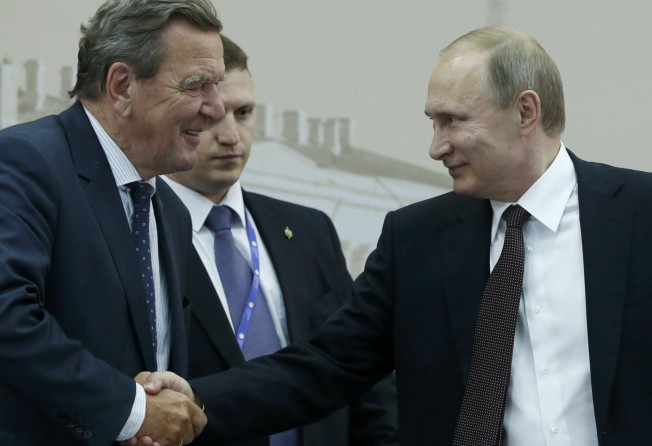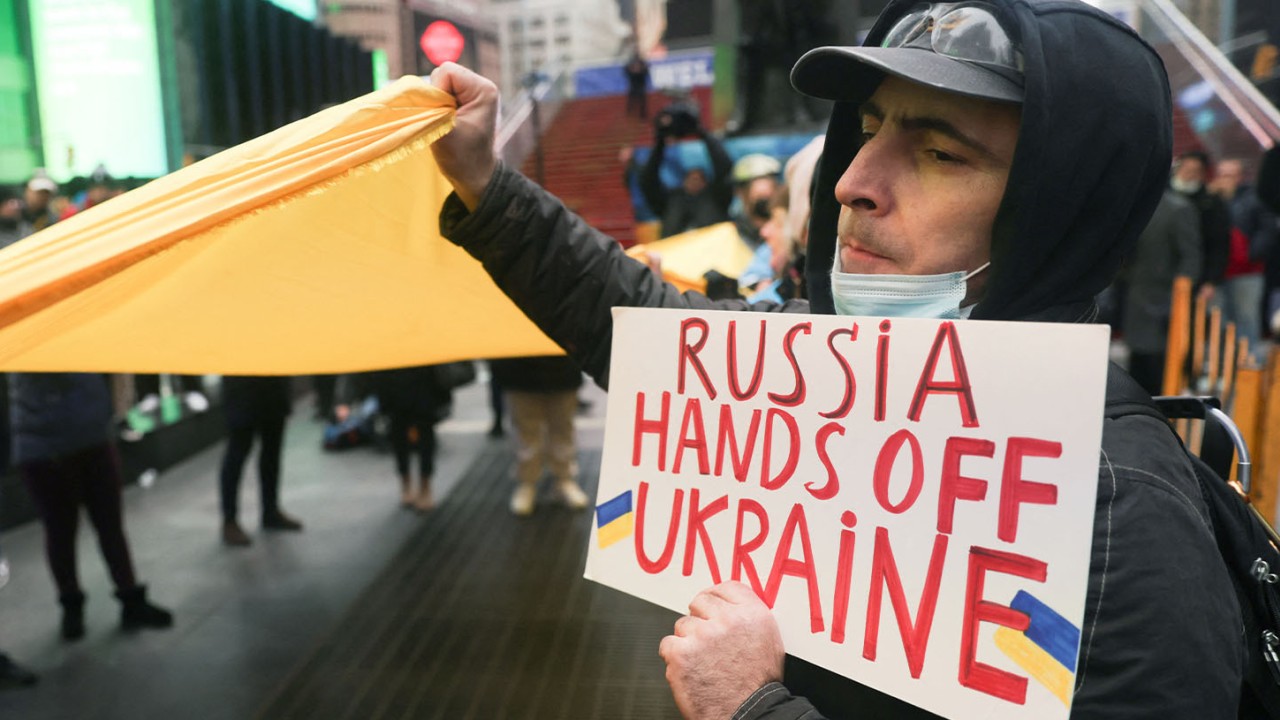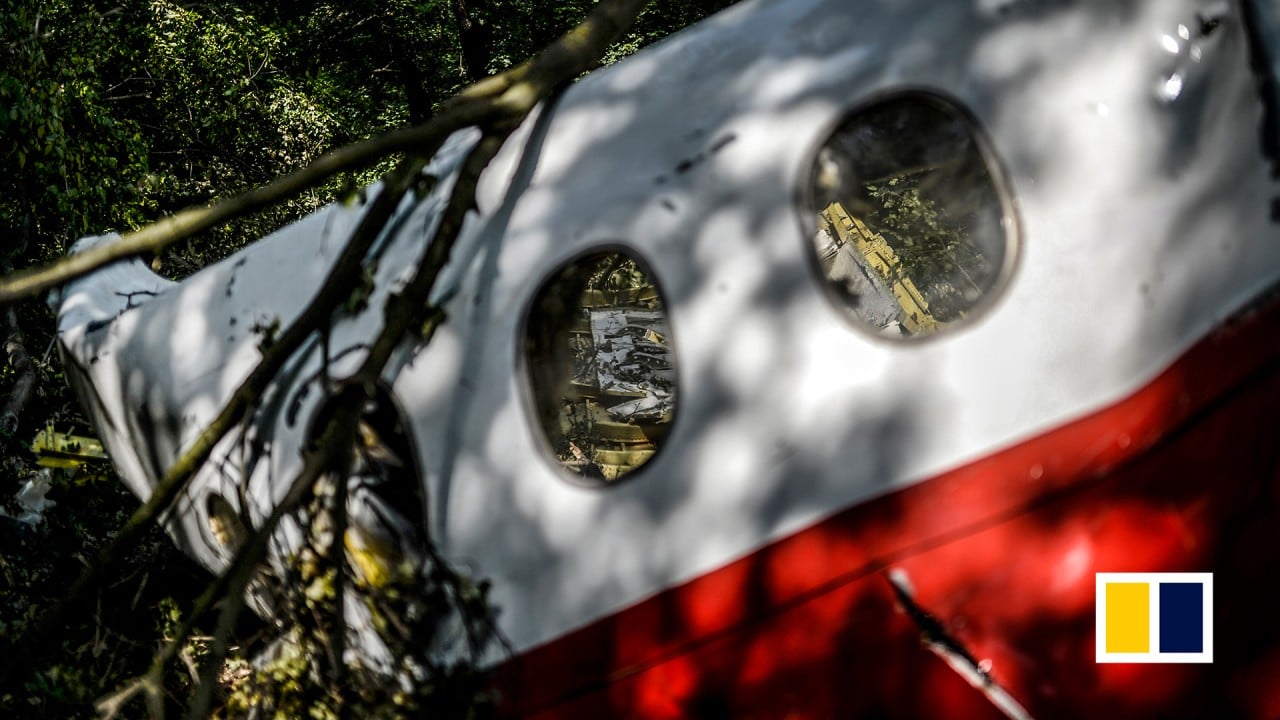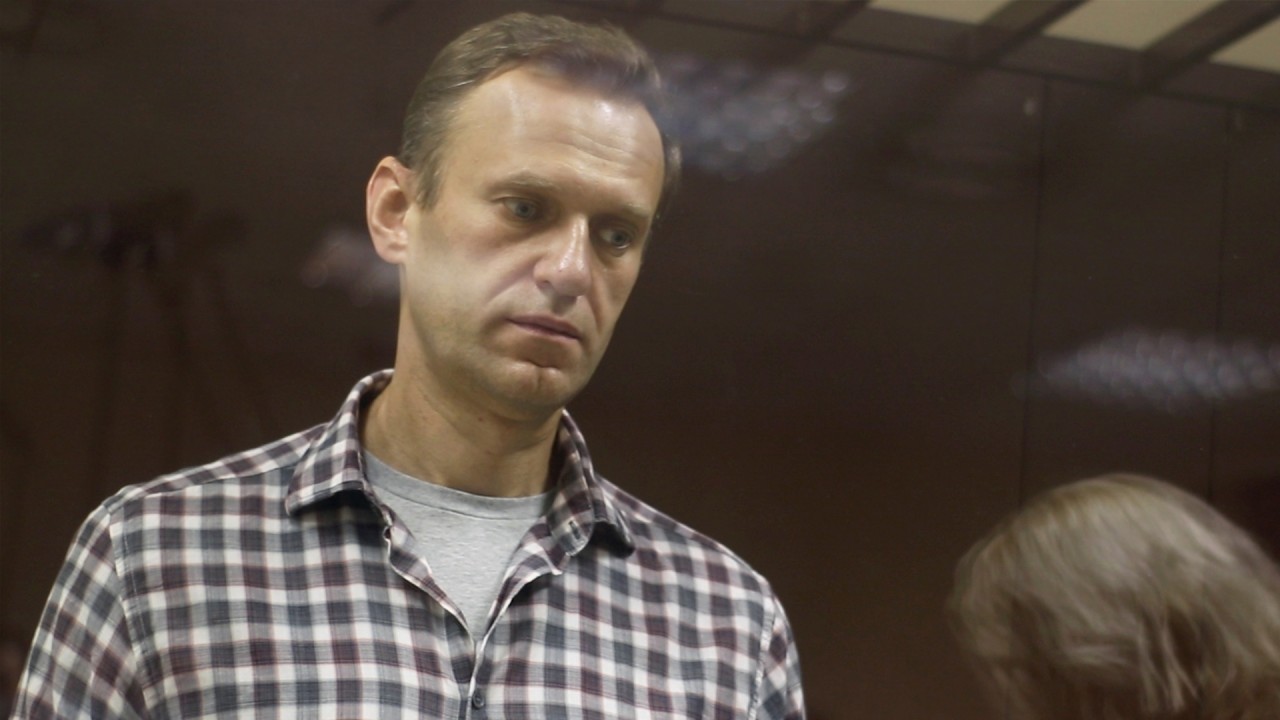
Germany’s U-turn on Russia underlines its failed policy of appeasement
- For decades, German leaders failed to acknowledge Putin’s ambitions, even when presented with evidence of it in Russian aggression in Georgia and Crimea
- It took a war in Ukraine and a different leadership for Germany to finally wake up

The German approach of dealing with Russia, with its perilous naivety of relying on dialogue, appeasement and cooperation, has failed. Two previous chancellors, Gerhard Schröder and Angela Merkel, were not inclined to face the reality that Vladimir Putin’s goal was never peaceful coexistence but aggression and territorial expansion.
More than ever, a paradigm shift is a sine qua non.
It’s the year 2001. Chancellor Schröder has invited his friend Putin to give a speech in the Bundestag. Standing ovations followed, and the German-Russian friendship seemed set in stone.
Perhaps it was Putin’s aura or his impeccable German, but almost no one seemed to acknowledge the core message of his speech, which sought a reshuffling of the European order, for Europe to quasi-shift its focus from Washington to Moscow.

In any case, when Merkel took office in 2005, German-Russian relations were considered comfortable: Russia was a G8 member, the Nato-Russia Council was operating and Moscow was negotiating a cooperation agreement with the European Union.
Nevertheless, one could increasingly see Putin transforming into an autocrat who disposed of his political opponents and deprived of water the delicate plant of democracy that grew in the east after the end of the Cold War.
Apparently, these developments were not noticed in Berlin. When asked if Putin was disregarding democratic principles, chancellor Schröder’s reply, which raised eyebrows even back then, was that Putin was a “flawless democrat”.
That this “flawless democrat” would, only a year later, call the collapse of the Soviet Union the greatest tragedy in geopolitical history did not seem to matter either.
Nor did Putin’s speech at the 2007 Munich Security Conference, when he said that “a unipolar world”, one “in which there is one master, one sovereign”, was “unacceptable”. In other words: after the Cold War and the collapse of the Soviet Union, Russia too had a claim to being a superpower again.
Many in Berlin had pinned their hopes on new Russian president Dmitry Medvedev, with whom a new, more liberal style seemed to be moving into the Kremlin. But a few months after he took office, all illusions were gone when Russia started getting hold of the Caucasus, recognising South Ossetia and Abkhazia as autonomous republics and invading Georgia.
Germany’s reaction? The Nord Stream pipeline initiated under Schröder in 2005 started operating in 2011.
The implications were vast. Thanks to the Nord Stream, Russia was no longer dependent on Ukraine when exporting natural gas to western Europe. Considering that Putin’s attitude towards former Soviet states was well known, one could have seen that the Nord Stream, while providing gas, would all but provide for future peace and stability.
In 2014, Putin annexed Crimea, which had been Ukrainian territory for 60 years. He also provided massive military support to the separatists in eastern Ukraine. That same year, a Russia-made warhead fired from eastern Ukraine caused the crash of a Malaysia Airlines flight en route from Amsterdam to Kuala Lumpur. About 300 people died.
The response from Germany and the West was limited to economic sanctions. In 2015, the inauguration of the Nord Stream 2 project went ahead. With Merkel’s unilateral decision to say goodbye to nuclear energy, she said hello to being a hostage of Russian gas.
It is why, despite all geopolitical concerns, including from the European Union and Washington, Berlin had stuck to Nord Stream 2 – the symbol of the failed German policy on Russia and an affront to Ukraine and other central and eastern European countries.
Schröder and Merkel considered economic relations with Russia and the post-war legacy, which Berlin sought to keep at all costs, as more pertinent than a confrontation with the Kremlin – notwithstanding the dismantling of human rights in Russia, Russian hacker attacks on the Bundestag and contract killings on German soil.
Yes, Merkel, unlike Schröder, voiced criticism, but never in a language Putin understands – namely determination and strength.
It took a war and a different leadership for Germany to finally wake up. Now, after Putin deployed hundreds of thousands of soldiers across the Ukrainian border and waged a war of aggression that will cost many lives, Germany is changing its position on Russia.
Chancellor Scholz recently announced the suspension of Nord Stream 2. Germany is now also ready to deliver arms to Ukraine.
But this can only be the beginning. With Europe’s security architecture shifting due to Putin’s aggression, Germany will no longer be able to avoid making a contribution worthy of its status in the world. Moreover, German appeasement towards Putin must be an approach of the past.
And indeed, on Sunday, during a special session of the Bundestag, Scholz put 30 years of his party’s Russia policy ad acta and announced that a special fund of €100 billion (US$112 billion) would be made available to Germany’s armed forces. He also said that Germany would finally meet the Nato target of spending 2 per cent of its gross domestic product on defence.
It marks a turning point in Germany’s security policy and is a desperately needed vigorous signal after its initial offer to send 5,000 helmets to Ukraine.
German idealism proved to be a historical error, and the moral and material failure of an entire generation of German politicians. From today, one may have hope that realism and reason have finally arrived in Berlin. Better late than never.
Thomas O. Falk is a UK-based independent journalist and political analyst


